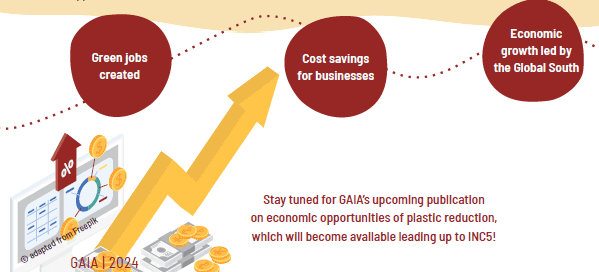MAY 4, 2018
The Zero Waste Law of the City of Buenos Aires was approved in 2005, following a long and highly participatory process which included diverse sectors. Thanks to this process, the law was respected and loved by many, in spite of the lack of political will that it suffered during its implementation. The law not only prohibited the incineration of urban waste, it also included minimization, source separation, education, reduction goals, and the construction of recovery and recycling systems with strong inclusion of waste picker cooperatives.
The second chapter of this long story began on May 3rd, with fast moving process that completely excluded citizen participation and left no space for public awareness or debate. This process resulted in dramatic changes that entirely erased the spirit of the original law, in particular removing the clause that currently prevents the incineration of urban solid waste. The reform was never presented to the multisectoral commission charge wit monitoring the Zero Waste Law — a body created by the law itself to discuss issues related to implementation.
The government affirms that it will prioritize recycling, but at the same time allows energy recovery as a possible technology. Moreover, the text states that only what is not recovered through differentiated collection will be incinerated. Does that not directly undermine the spirit of the law?
The Global Alliance for Incinerator Alternatives and all its members around the world express our disappointment and concern for this process and its results. By removing the clause that prevented incineration, this is no longer a Zero Waste Law, since the Zero Waste concept excludes incineration technology and its variants.
We reaffirm our conviction about the nefarious nature of incineration as a technology for the management of waste. Not only is it a source of emissions that endanger human health and the environment, it is also highly costly and incompatible with recovery and recycling. To generate energy, incinerators require a permanent flow of materials with high calorific value — including the exact materials that are destined for the recycling market. In this unsustainable model, recycling workers are also excluded.
We reaffirm our commitment to work for the health of people and the environment, alongside the communities and recyclers that will be affected by this decision.
We join the various statements that have come out against this reform, from the most diverse sectors, and we ask ourselves: who was in favor of it? If practically all sectors of society expressed their opposition to this project, who are the legislators really representing?
Council of Social Organizations of the Ombudsman’s Office (about 50 organizations and a similar number of committed people): “The prohibition on incineration guarantees that the resources destined to waste management are invested in the recovery circuits, and not in technologies that would reduce the tons of waste more quickly, but through a mistaken method that is contrary to the hierarchy of waste management “
Faculty of Agronomy of the UBA: “Invite the Government of the CABA to invest resources in time-honored public policies, consistent with the objectives of the law, to reduce the generation of residual waste, strengthen the work of urban recyclers, and promote the recycling industry … “
Cartoneros Cooperatives: “This is an outrage that has harmful consequences for the environment and the health of citizens, and puts the work of all recyclers of the City and the Province of Buenos Aires at risk.”
Cures Villeros: “The burning of recyclable material is worrisome, as many recyclers need it to earn their livelihood,” says the document, sent to Buenos Aires lawmakers and disseminated to the entire community. “The initiatives of community organizations of recyclers are committed and able to include many people and families that a private company could not absorb”
Chamber of the Plastic Recycling Industry: “the promotion of the combustion of solid waste promotes the extraction of renewable and non-renewable resources, generating greater energy consumption”
Researchers from national universities: “It is the duty of public policy to respect the hierarchy of Integrated Management of Urban Solid Waste in both implementation and the budgets assigned to each type of work.”
It it senseless to insist on imitating recipes for pollution such as incineration, which have had poor results controlling the generation and disposal of waste in the “model” countries. For example, Denmark burns more of its waste than any other country in Europe, and also generates the most waste per capita of any country in Europe. Is that what we are looking for?
While Europe is beginning a period of self-reflection and reparation (take the recent European Parliament vote to end subsidies for mixed waste burning, undoing the incentives that have led to the incineration of recyclables), the authorities would have us believe that incineration is a last ditch solution to the challenge posed by waste. Just since 2012, Europe has developed EU Resource Efficiency Map which, “considering the hierarchy of waste and the need to bring waste that can not be used to zero,” calls on the Commission to make proposals with the objective of “gradually introducing the ban on sanitary landfills in Europe, and the end of incineration of recyclables and compostables by the end of the decade.”
We face growing challenges when it comes to the generation and disposal of waste, and we reaffirm that zero waste is the only possible way to build a relationship of respect and active gratitude for what the planet offers us.




























